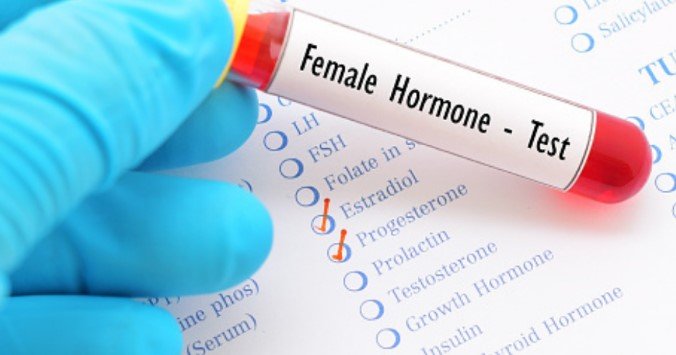Why is Female Hormone Testing Important?

Hormones are the body’s signaling molecules responsible for regulating various functions, including mood, energy, metabolism, sleep, and reproduction. There are many hormones in the body, but in women, reproductive hormones such as estrogen, progesterone, testosterone, thyroid hormones, and cortisol are the hormones that are more important. These hormones affect physical performance and also the state of mind.
There are causes and effects of imbalances and fluctuations in hormonal levels, which may include depressed feelings, changes in weight, excessive tiredness, missed periods, and problems with getting pregnant. Testing of female hormones offers an important insight into these critical levels, allowing women to take charge of their health by detecting hormonal-based causes of different symptoms.
Understanding Female Hormones
Hormones are intricate and interlinked among women, with each performing its own unique role. The following are the most significant hormones and their relations to women’s health:
- Estrogen
Estrogen is the primary female hormone responsible for the development of secondary sexual characteristics and for the normal functioning of the menstrual cycle. It also promotes cardiovascular health, maintains skin pliability, and strengthens bones.
- Progesterone
Considered the pregnancy hormone, progesterone is a female hormone secreted by the ovaries that controls the menstrual cycle, readies the uterus for conception, and supports the early stages of pregnancy. It is also tranquilizing and often counteracts estrogen’s excitatory action.
- Testosterone
Testosterone, although referred to as the male hormone, is pivotal to a woman’s well-being as well as her energy, mood, muscle tone, and libido.
- Thyroid Hormones
These hormones are released by the thyroid gland, which plays a part in the regulation of the metabolic rate, energy levels, and temperature of the body. Thyroid changes can cause fatigue, mood swings, and changes in weight.
- Cortisol
Cortisol is often referred to as a “hormone of stress” as it influences energy levels and affects mood and immune responses. Usually, chronic stress, together with hormonal imbalance, leads to high levels of cortisol, which inhibits other hormones, leading to tiredness, obesity, and even the development of resistance to hormones.
Read also: Vosita.com: Your Personalized Health Companion
The Connection of Fertility and Hormones
In respect of procreation, female hormones cannot be substituted with anything else. Estrogen and progesterone are hormones responsible for the menstrual cycle, ovulation, and the readiness of a woman’s body for an implant. If the levels of these hormones are not balanced, it may be difficult to conceive or lead to difficulties in carrying the pregnancy. Hormonal imbalances and fertility potential: this is how these two are linked:
- Ovulation Disorders
Hormonal factors like estrogen, progesterone, and luteinizing hormone (LH) play essential roles in the ovary’s egg-releasing function. Disruption of these hormones can result in a lack of ovulation, thus making the female unable to conceive. Other ovulation disorders, such as PCOS, which occurs with excess levels of androgens and irregularities in females’ menstrual expectations, are very prevalent.
- Uterine Lining & Implantation
It’s essential to have normal levels of progesterone in order to prepare the endometrium for pregnancy. Low levels of progesterone may lead to a thinner endometrium that diminishes the chances of successful embryo implantation.
- Thyroid Function
Another factor that’s very important for fertility is the level of thyroid hormones. Both hypothyroidism and hyperthyroidism have been shown to disrupt the menstrual cycle and may also prevent ovulation. Thyroid disorders may also be associated with oligomenorrhea or primary amenorrhea in women.
- Polycystic Ovary Syndrome (PCOS)
PCOS is a well-known malaise blamed for hormone imbalance where the production of reproductive hormones is impaired, causing altered menstrual periods and making it hard to get pregnant.
- Menstrual Health & Pregnancy
Moreover, attaining the appropriate levels of hormones is crucial, especially during pregnancy. One gives an example of the stress-induced hormone cortisol and states that there are other reproductive hormones working in sync, which makes it easy to conceive.
Why Is it Important to Get Tested?
A hormone test serves useful purposes besides indicating whether one is pregnant or not. Below are five essential factors as to why female hormone tests should be done.
- Identify the Cause of Symptoms
Several signs, such as weakness, lack of or excess weight, alopecia, and altered moods, are often explained by hormonal changes. For instance, when a woman has low levels of estrogen, fatigue is likely to be caused, whereas, with high levels of cortisol, a woman may feel anxious. The screening allows for the assessment of such abnormalities, which helps the caregivers offer a well-tailored intervention. Without this examination, these complaints may be ignored or mistreated, which only enhances suffering.
- Improve Reproductive Health & Fertility
As for women who are actively trying to achieve pregnancy, a female hormone test is the most crucial first stage of all. Knowing levels of the essential reproductive hormones, a physician may diagnose some problems with fertility, such as too-low levels of progesterone and too-high levels of androgens, which would need special therapies. This facilitates the proper management of caring for the patients, as it enables such women to seek medical assistance at an early stage that saves the pregnancy.
- Manage Menopause & Perimenopause
Perimenopause is the transition phase before menopause. This stage is characterized by an increase or decrease in hormone levels, which causes the body to present certain symptoms such as hot flashes, sleep problems, and mood swings, among others. Since during this phase, a woman’s estrogen, progesterone, and any other hormones may be tested, it also helps in determining the best hormone replacement therapy or any other form of treatment.
- Support Mental Health & Well-being
Hormones like estrogen, progesterone, and cortisol have an effect on mood, stress levels, and overall mental well-being. These changes can also lead to serious ailments, which include anxiety, depression, and irritability. In this way, testing serves as the first step for ensuring a patient’s mental health plan has balancing treatment as well, including hormone change therapy, cognitive therapy or medications, and management.
- Take Control of Long-term Health
There are serious diseases that one can suffer from as a result of hormone imbalance, such as chronic osteoporosis, heart-related issues, and diabetes. For example, many women’s research has shown that estrogen helps protect the heart and bones. Estrogen replacement therapy, in addition to other treatment options, may avert this. Such changes tend to help include ‘diagnosing’ hormone levels as observably or subjectively active in preventing… women’s health problems in the first place.
The Final Words
Testing for female hormones is not only a means of diagnosis but also a means to reach out to a body and understand its systems better, as well as direct one’s efforts towards health and well-being. Hormones tend to fluctuate with changes in one’s way of living, emotions, and even with age. Therefore, there is a need to make a routine examination of hormones, more so during a critical period of a person’s life. I.e., the age of puberty, during pregnancy, and even in menopause. Knowing when the hormonal balance is skewed and synergistically working at fixing the imbalance helps a person feel better and, most importantly, increases the quality of life.





